Introduction: The Detox Craze Uncovered
In recent years, detox diets have exploded in popularity, promoted by celebrities, influencers, and wellness gurus promising rapid weight loss, glowing skin, and “toxin-free” living. Juice cleanses, lemon water fasts, colon flushes, and detox teas flood social media with bold claims—but are they scientifically valid or just health myths wrapped in pretty packaging?
In this article, we’ll separate fact from fiction. You’ll learn what detoxing really means, what your body already does to detoxify, and which methods are safe and evidence-based. We’ll also debunk popular detox myths that could harm your health rather than help it.
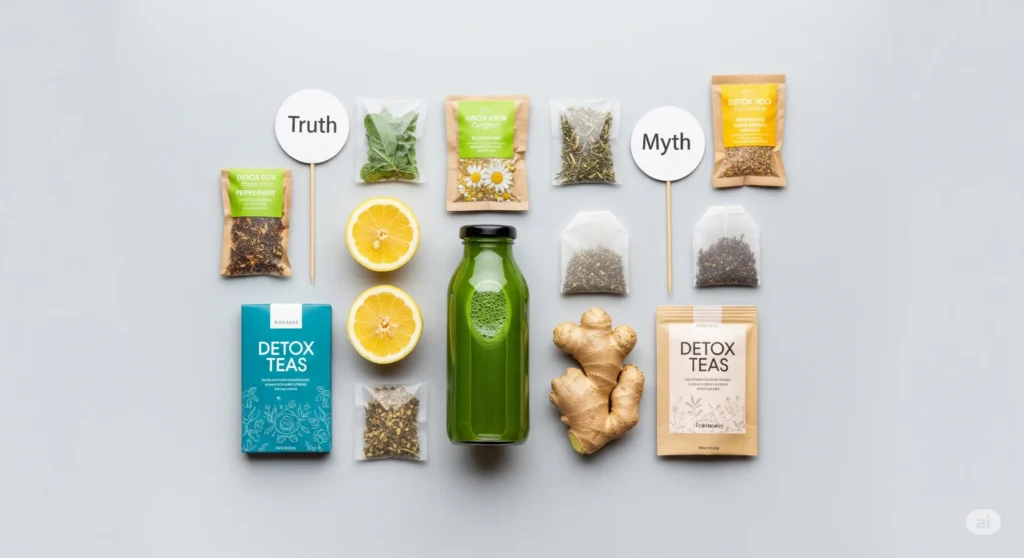
What Is Detoxification, Really?
The term “detox” simply refers to the process of removing toxins from the body. However, most people don’t realize that your body already has a built-in, highly efficient detox system:
- Liver – Processes and breaks down harmful substances
- Kidneys – Filter waste from blood and regulate fluid balance
- Lungs – Expel carbon dioxide and airborne toxins
- Skin – Releases waste through sweat
- Digestive system – Eliminates waste through bowel movements
These organs are constantly working behind the scenes, and in a healthy body, they don’t need a special juice cleanse to function.
Common Detox Diets & Their Claims
Let’s break down the most popular detox trends and analyze the truth behind them:
1. Juice Cleanses
Claim: Flush out toxins and aid rapid weight loss.
Reality: You may lose water weight temporarily, but most juice cleanses are low in calories, protein, and fiber. Extended use may slow metabolism and harm gut health.
2. Detox Teas
Claim: Burn fat, clean your colon, and flatten your belly.
Reality: Many detox teas contain laxatives or diuretics like senna, which can cause dehydration and nutrient loss. They don’t burn fat or remove toxins.
3. Water Fasts / Lemon Detox (Master Cleanse)
Claim: Rest the digestive system and remove toxins.
Reality: Prolonged fasting can cause dizziness, fatigue, muscle loss, and electrolyte imbalance. There’s no science showing fasting removes toxins faster.
4. Colon Cleansing / Enemas
Claim: Clear out “old waste” and reset digestion.
Reality: The colon naturally clears itself. Frequent enemas or colonics can cause damage to the gut lining and disrupt natural flora.
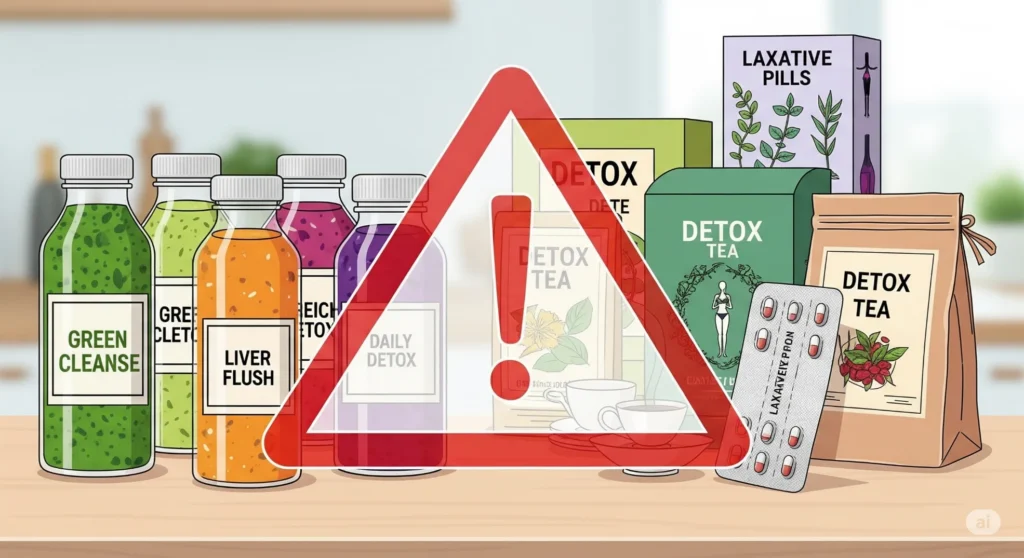
The Myths You Need to Stop Believing
Here are the most common myths about detox diets, and the truth behind each:
❌ Myth 1: You need to detox to eliminate toxins.
Truth: Your liver and kidneys do this every day, all day. Unless you have liver or kidney disease, your body is already detoxing efficiently.
❌ Myth 2: Detoxing leads to long-term weight loss.
Truth: Most detox weight loss is water or muscle—not fat. Real, sustainable fat loss requires long-term calorie control and exercise.
❌ Myth 3: You’ll feel amazing after detoxing.
Truth: Many people feel weak, irritable, and hungry. The sense of feeling “lighter” is often due to calorie restriction and empty bowels—not toxin removal.
❌ Myth 4: Detoxes are needed after binge eating.
Truth: Overcompensating with a cleanse is mentally and physically harmful. Balanced meals and hydration are better responses to overeating.
What Actually Works: Healthy, Science-Backed Detox Strategies
✅ 1. Drink More Water
Water supports kidney function, flushes out waste through urine, and helps digestion. Aim for 8–10 glasses a day.
✅ 2. Eat More Fiber
Soluble and insoluble fiber help move waste through the digestive tract and feed good gut bacteria. Eat:
- Oats
- Beans
- Vegetables
- Fruits
- Whole grains
✅ 3. Support Liver Health
The liver is your main detox organ. Help it with:
- Leafy greens (kale, spinach)
- Cruciferous veggies (broccoli, cauliflower)
- Garlic
- Turmeric
- Moderate alcohol intake
✅ 4. Get Quality Sleep
Sleep is when your body resets and removes waste from the brain via the glymphatic system. Aim for 7–9 hours per night.
✅ 5. Exercise Regularly
Physical activity boosts circulation, improves digestion, and helps the body excrete waste through sweat and increased metabolism.
✅ 6. Try Fermented Foods
Probiotic-rich foods help gut flora balance, improving digestion and natural detoxification. Try:
- Yogurt
- Kimchi
- Sauerkraut
- Kefir
✅ 7. Limit Processed Foods and Alcohol
Processed food is high in sugar, preservatives, and artificial additives—substances your liver works hard to break down.
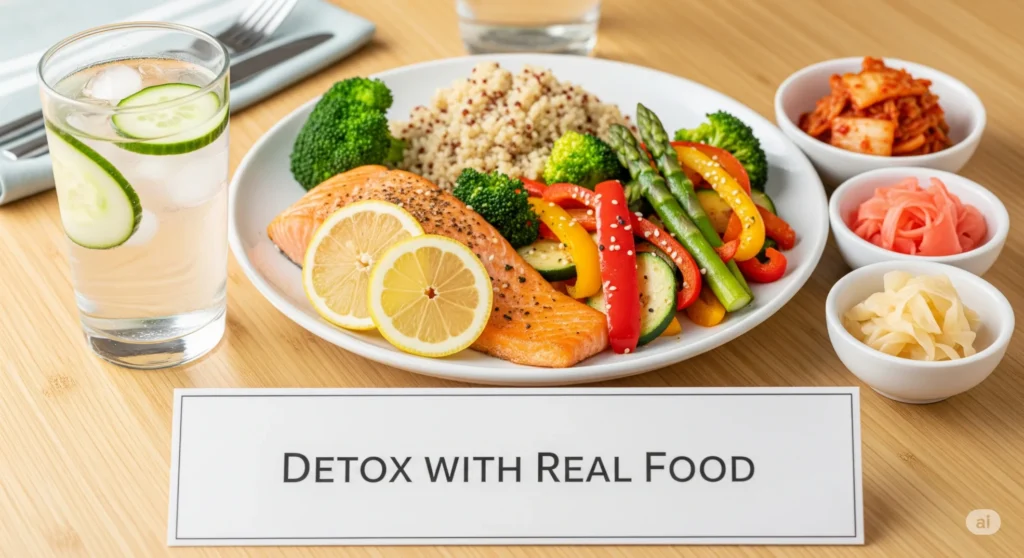
When You Might Need Medical Detox (And Not a Trendy Cleanse)
While most people don’t need a detox, there are situations where medical detoxification is necessary, such as:
- Drug or alcohol overdose
- Heavy metal poisoning (e.g., lead, mercury)
- Accidental ingestion of toxic substances
These require urgent medical care—not a juice cleanse or herbal tea.
Psychological Effects of Detox Culture
The detox trend can lead to unhealthy relationships with food. People may fall into cycles of:
- Restricting and bingeing
- Fear of normal food
- Guilt around eating
This can fuel disordered eating patterns and body image issues. Instead of falling for fear-based marketing, focus on long-term lifestyle changes, not short-term gimmicks.
What Doctors and Dietitians Say
“There’s no clinical evidence that detox diets remove toxins. The liver and kidneys do this for you.”
— Dr. Edzard Ernst, Physician and Researcher
“If a detox diet causes weight loss, it’s usually due to calorie restriction and water loss—not toxin removal.”
— Registered Dietitian Nutritionist, Academy of Nutrition and Dietetics
A Sample 1-Day Gentle Detox Plan (Real Food Focused)
Here’s a day of eating that supports your natural detox system—without deprivation:
| Time | Meal | Details |
|---|---|---|
| 8 AM | Warm lemon water | Boost hydration and digestion |
| 9 AM | Green smoothie | Spinach, banana, chia seeds, almond milk |
| 12 PM | Grain bowl | Quinoa, roasted veggies, chickpeas, tahini |
| 3 PM | Snack | Apple slices with almond butter |
| 6 PM | Dinner | Baked salmon, steamed broccoli, brown rice |
| 8 PM | Herbal tea | Ginger or peppermint (supports digestion) |
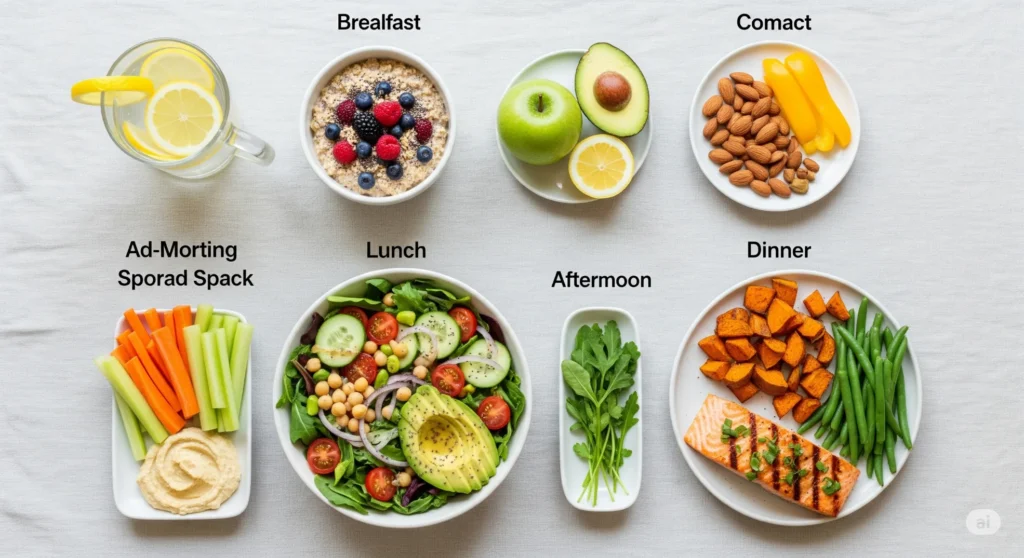
Final Thoughts: Don’t Fall for the Detox Diet Hype
Detox diets may sound appealing, especially when marketed as a “reset” or “cleanse,” but most of them are based on myths, not science. In some cases, they can do more harm than good.
Instead of starving your body or flushing it with unproven products, focus on:
- Eating real, whole foods
- Staying hydrated
- Sleeping well
- Moving your body
- Avoiding excess alcohol and processed food
Your body is smarter than any fad—it knows how to detox, every single day.
✅ Key SEO Keywords:
- Detox diet myths
- Safe ways to detox
- Natural detox methods
- Juice cleanse dangers
- Healthy detox foods
- How to support liver health
- What is real detoxing
- Do detox diets work?
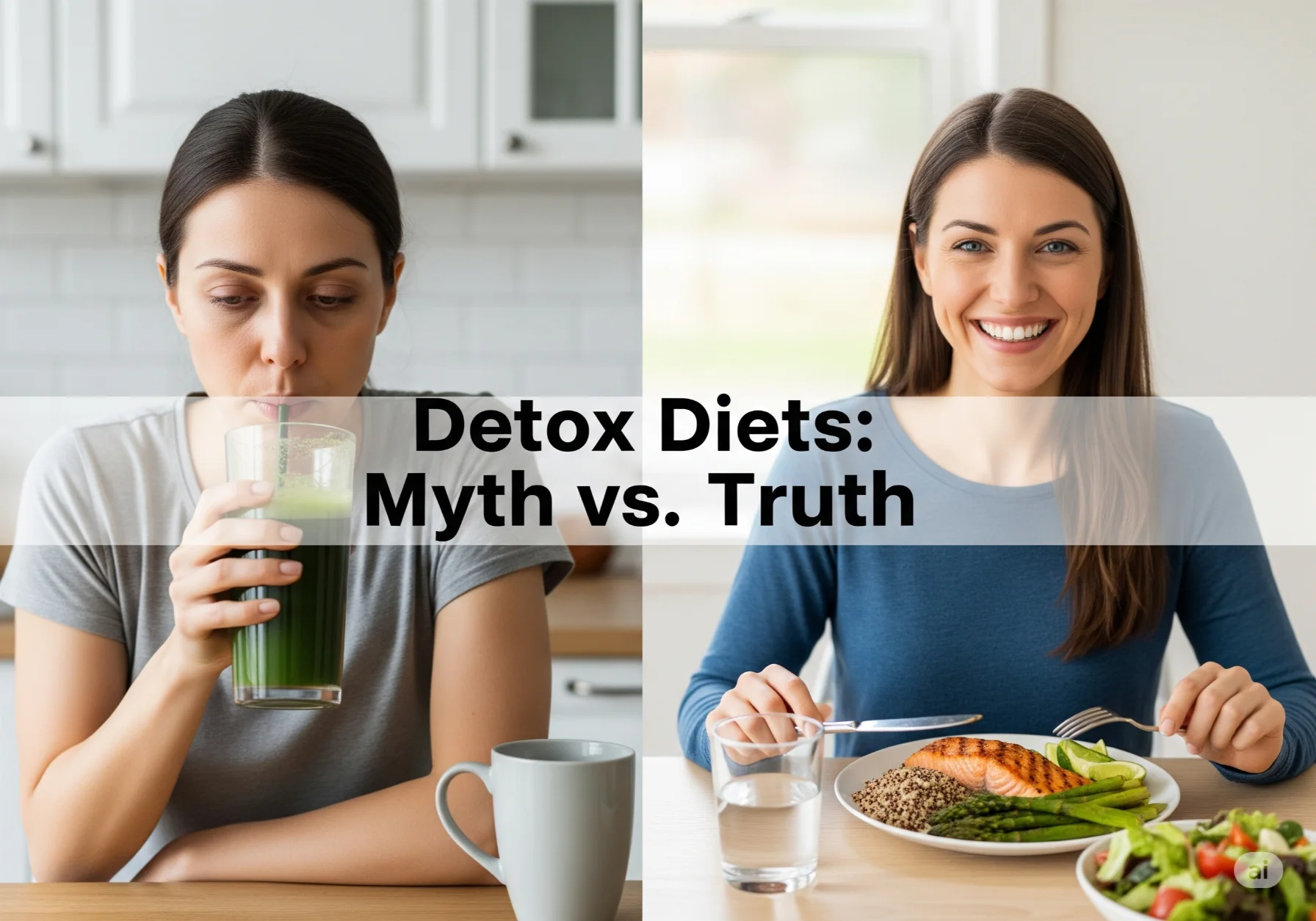




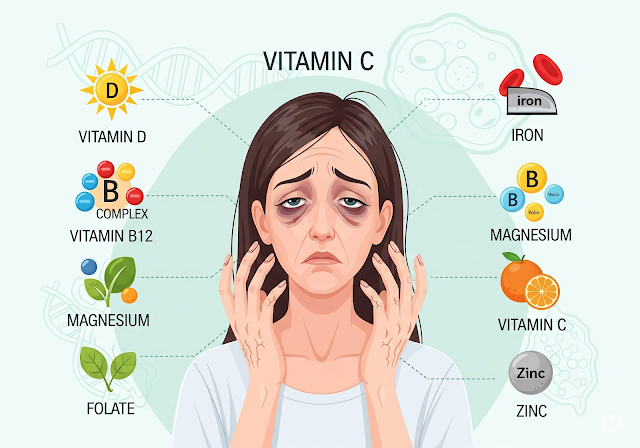
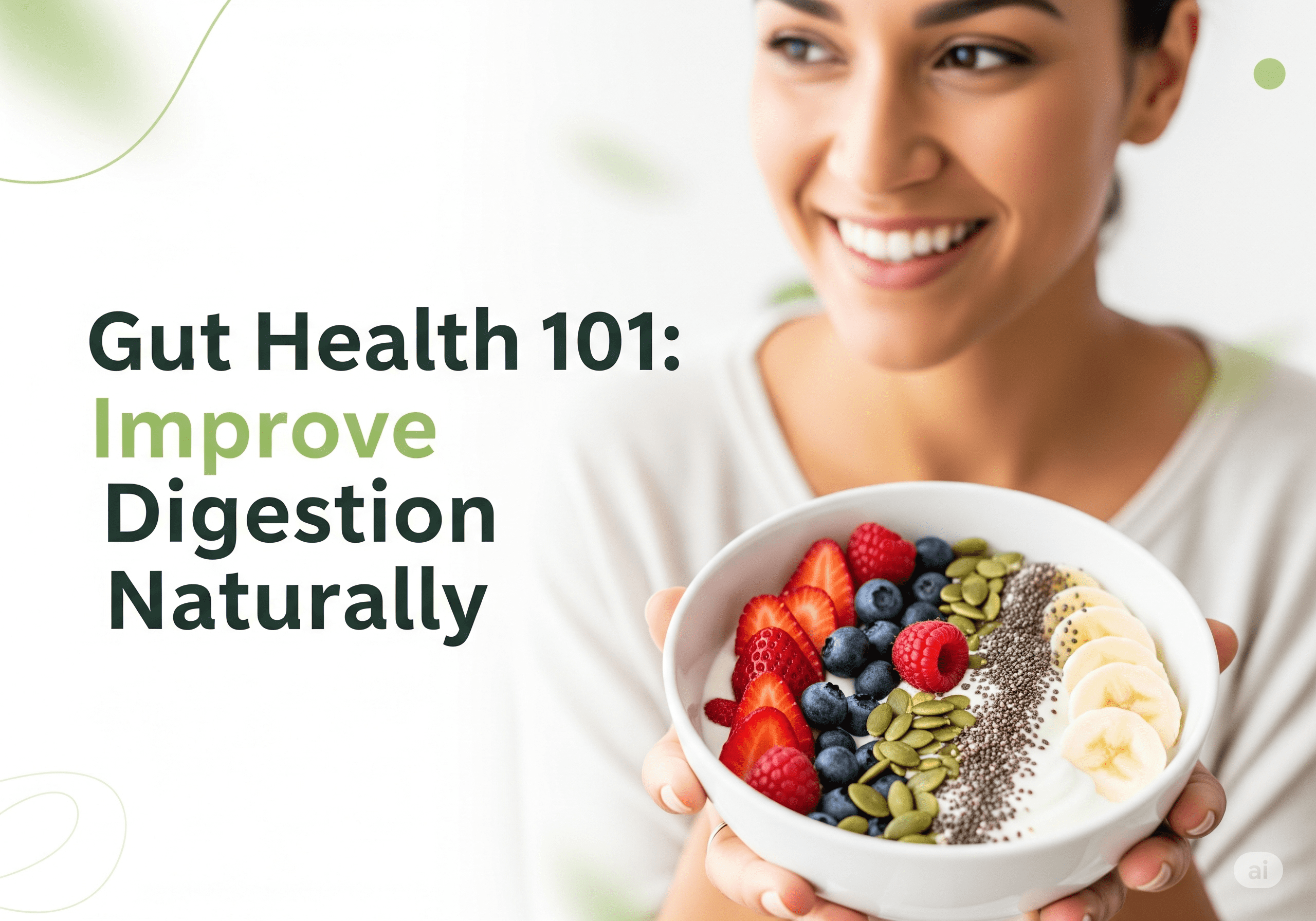

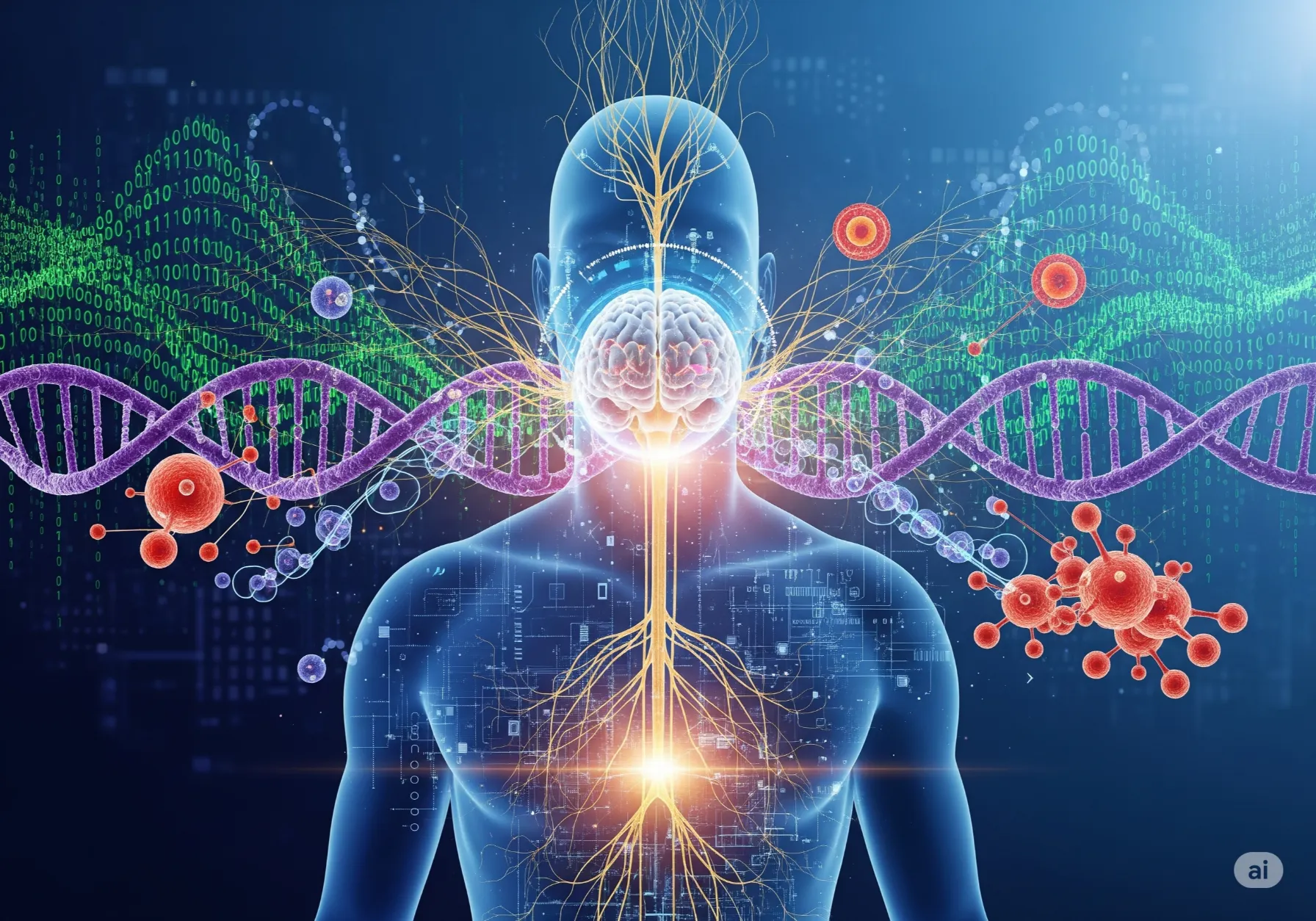



Leave a Reply